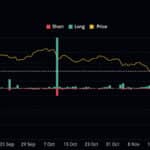
(An AlixPartners study was referenced in today's WSJ in an Orwellian article entitled 'More shoppers hitting the malls' which included nuggets like : 'consumers remained thrifty ...but a growing number of shoppers turned up' -geez was it the weather? did they charge for loitering?; and a description of a lady who went over her $150 budget - yea beer - but 'bought a larger size so that her children can wear it throughout the year'. -AM)
Alix Partners:
While American industry is struggling to get through what could become the worst recession since the Great Depression, Americans say that even after the recession ends, their spending will return to just 86% of pre-recession levels, which would take a trillion dollars per year out of the U.S. economy for years to come. According to this in-depth survey of more than 5,000 people, Americans plan to save (and therefore not spend) an astounding 14% of their total earnings post-recession, with the replenishment of their 401(k) and other retirement savings leading the way among their biggest long-term concerns.
(On the bright side, I guess, a lot of that money will go into Treasuries. -AM)
Survey participants estimated that their retirement savings have dropped an average of 25% from pre-recession levels, the same percentage they feel their total net worth has declined as well. And almost a quarter of those polled (22%) said they now plan to retire later than previously expected, driving the expected retirement age up over 3.5 years compared with 2007 levels.
Also of note, 82% of those polled said they would use upcoming U.S. government tax rebates, not to stimulate the economy via immediate spending, but instead will save that money or use it to pay down personal debt.
And those planning to save the stimulus money reported they would be sitting on that cash for three years on average.
(Your money has no velocity here sir. -AM)
Even if these findings are colored somewhat by the emotions of the day, Americans are definitely speaking loud and clear: They believe the “new normal” for the American economy going forward will be more like the early 1980s than the mid-2000s.




No comments:
Post a Comment